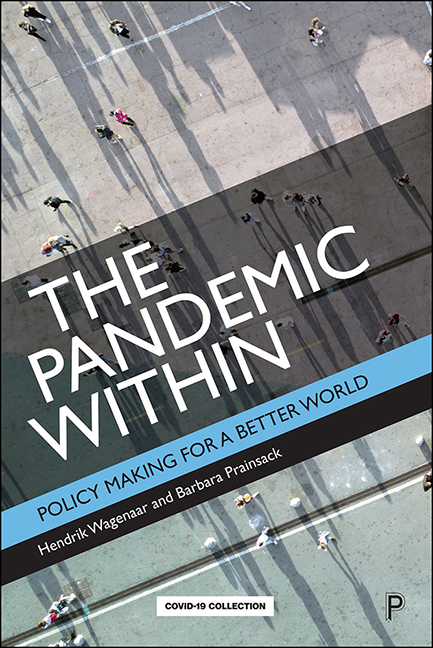Book contents
- Frontmatter
- Contents
- Acknowledgements
- 1 Introduction: The pandemic within
- 2 At home in the world: overcoming the predicament of complexity and hegemony
- 3 Ensuring a well-functioning public infrastructure
- 4 Housing is a public good, not a commodity
- 5 Redefining work and income
- 6 The return of good government
- 7 Real corporate responsibility
- 8 Money as a public good
- 9 Living in the Anthropocene
- 10 Towards an ecological society
- Notes
- References
- Index
7 - Real corporate responsibility
Published online by Cambridge University Press: 13 May 2022
- Frontmatter
- Contents
- Acknowledgements
- 1 Introduction: The pandemic within
- 2 At home in the world: overcoming the predicament of complexity and hegemony
- 3 Ensuring a well-functioning public infrastructure
- 4 Housing is a public good, not a commodity
- 5 Redefining work and income
- 6 The return of good government
- 7 Real corporate responsibility
- 8 Money as a public good
- 9 Living in the Anthropocene
- 10 Towards an ecological society
- Notes
- References
- Index
Summary
Moving factories
On 3 October 2007, writes the British journalist James Meek, the 500 workers at the Cadbury chocolate factory in the town of Keynsham were told that their jobs would be moved to Poland. ‘Highly paid, permanent, solidly pensioned jobs’, he adds. It does not surprise the reader that the move was exclusively motivated by the circumstance that ‘their Polish replacements could do the same job for less than one fifth of the money’, and not because Cadbury's products were not selling, or because the factory was unprofitable (Meek, 2017). On the day of the announcement the managers locked the workers out and posted security guards at the factory gate. They feared a violent reaction. But the workers, many of whom had worked at the company for decades, ruefully remarked that management had misjudged the mood in the community and that the residents would have done anything to keep the factory in Keynsham.
Meek's article about the move of the Cadbury factory to the Polish region of Skarbimierz encapsulates everything that is problematic about the corporate sector today. He describes in detail how the history of the company was joined up with the culture and history of the town. Generations of Keynsham residents had been employed by the company. The town's economic destiny, its collective pride and its residents’ identity were tied up with the Cadbury plant. The company had profited from the availability of public infrastructure, the skills and education of its workforce, the invisible labour of women, the natural resources it used, and the state's investment in research and innovation. Similar to companies all over the world, Cadbury owed a debt to the society, community and natural environment that made it possible for the company to operate.
In the end all this did not weigh in when the corporation decided to move its production technology to Poland. Helped by generous tax breaks and subsidies from both the Polish government and the EU, and a local workforce that was willing to work for less than the workers in Keynsham, Cadbury's managers moved the entire plant. It must be added that Cadbury's Board had been under fierce pressure from its major shareholders, in particular a hedge fund that was financed by a Qatar sovereign wealth fund, to increase return on capital.
- Type
- Chapter
- Information
- The Pandemic WithinPolicy Making for a Better World, pp. 85 - 98Publisher: Bristol University PressPrint publication year: 2021

